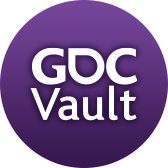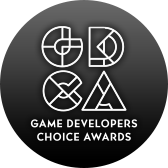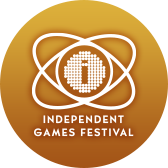| FEBRUARY 2017
In This Issue:
- Oculus - In this interview, Oculus' Steve Arnold updates GDC attendees on what's next for the VR company, and what we can expect out of virtual reality development in 2017.
- Google Play - In this interview, Google Play's Jamil Moledina talks about his current strategy for games: how developers can make their games successful on Android and get the most out of VR/AR and other emerging technologies.
- Facebook - In this interview, Facebook’s Leo Olebe gets GDC attendees caught up on what’s next for Facebook’s VR business and its burgeoning Instant Games.
 | |
 Steve Arnold Head of Studios | In this interview, Oculus' Steve Arnold updates GDC attendees on what's next for the VR company, and what we can expect out of virtual reality development in 2017. |
Q: Can you introduce yourself and explain what we can expect out of Oculus at GDC?
I'm Steve Arnold and I'm the Head of Studios at Oculus. Our team loves GDC because it's such a great opportunity to interact directly with the developers that are creating amazing VR content. For us, this year's GDC is all about where VR content is going and how to build on the innovations we've already seen. So, we'll have talks around the key design and technical learnings the VR development community has encountered in both mobile and PC VR. We'll also be showing what some of the most promising VR games and experiences are for 2017 in our booth and off the show floor. Beyond that, the most important thing is to make sure we get to talk to as many devs as possible – whether they are neck deep in VR, or just looking to get started. .
Q: As we head into 2017 with a broader picture of the VR market, can you paint us a picture for what Oculus' big goals for the year are?
We want to show the world a glimpse of the future of gaming and entertainment. Now that hardware is out there, the real interesting part is to see what developers will make. At this point, dev kits have been in the wild for a couple years now. Some studios have started shipping their second or even third game. With that sort of time investment and knowledge base behind them, we're confident that the 2017 game line-up is going to start showing the depth and engaging narratives that people have come to expect from existing games. Some of these will be reinventions of traditional genres in VR, while others will be explorations of new genres. I'm personally most excited about the games get us even closer to what most perceive as AAA quality, especially those from top tier studios like Epic, Twisted Pixel, 4A, and Ready at Dawn. We can't wait to help launch those games and see what people think.
Q: Oculus Story Studio has produced some really neat films in the last few months, how do you all see the VR entertainment market going?
We feel extremely lucky to be able to have a first-hand look at all the ways narrative entertainment is changing. The industry is already recognizing the potential impact of these changes (with the Emmy that Henry brought home) and the experimentation in storytelling and immersion has been massive. I think we'll continue to see more of this experimentation, and we'll see bigger names get involved – not just to market existing entertainment but as the best way to convey the story they are trying to tell.
Q: What advice would you give to a developer looking to join the wonderful world of virtual reality?
You can buy a Rift and Touch off the shelf, download the SDK from our site for free, and begin developing right away. So anyone can get started now, which is exciting from the perspective of what sort of innovation can happen as the barrier to entry gets lowered. For devs that have tons of game development experience, I'd say that you should look at VR as an opportunity to really learn something new. So much of what goes into early VR development is re-writing the decades worth of design expectations and language that the industry has developed. This means whole new concepts are still waiting to be discovered. It also means that the way you did something before probably won't work anymore… so plan to spend a lot more time in pre-production iterating on your core ideas. We have a ton of resources to help people get started, including plenty of talks from past GDCs and our own Oculus Connect conferences so there's already a wealth of knowledge to draw upon to get started. Finally, I would recommend just playing as many VR games and apps as possible. We're still so early in the life cycle of this brand new medium that there's almost always something to be learned from each experience that's available today.
Q: Will we ever see a VR Troopers game?
I'm sure you mean another VR Troopers game. I don't think anyone can top the original Genesis game, though I preferred the Game Gear version even if it did cost an arm and a leg in AA batteries to play. Plus, what would we call it? VR VR Troopers? VR Troopers VR? No, best to leave it be.
 |
 Jamil Moledina Games Strategic Lead | In this interview, Google Play's Jamil Moledina talks about his current strategy for games: how developers can make their games successful on Android and get the most out of VR/AR and other emerging technologies. |
Q: Can you introduce yourself, your position at Google, and what our attendees can expect out of Google's Developer Day?
Sure, I'm Jamil Moledina, I've been in the industry for twenty years, including some time running your show GDC, BD for EA, and running my own game dev startup. I've been at Google for three years now, as Games Strategic Lead for Google Play, which means that I set outreach and support strategies for key partners. My team and I manage their performance on the store, and also curate the game portfolio for Daydream, Google's high performance mobile VR platform.
This year, I'm co-leading our Google Developer Day at GDC, which includes a full day of sessions for developers to hear what's new and exciting on Android. We'll start the day by revealing what we've got planned for supporting game engagement, game performance on device, and a sneak peek at great games coming to Play. Then, we'll move into a diverse set of lightning talks and panels covering hot topics from virtual reality, machine learning, eSports, and more. The day is open to any attendee with a GDC expo pass and will be live streamed for those who can't make it in person.
Q: How does the Google Play store overlap with the new Google Daydream Store, and if it does, can you explain what developers should be keeping an eye on in the mobile VR marketplace?
Great question, the reach of Google Play and the consumers already engaged with it are central to why Google Play is the digital store within Daydream. To start, Google Play is the largest store for digital content with a vibrant and diverse community of players. One of our primary focuses on Play is to ensure that the store has games for everyone, and given that Daydream is built on Android phones, the same mantra applies to VR for us.
Last November, we launched Daydream, a VR platform built on Android where you engage with VR experiences with a simple viewer and controller. With Daydream we see an opportunity, to create a new kind of input device, designed exclusively for mobile VR and open incredible opportunities for developers to design for VR. We have been working closely with the Daydream teams to ensure developers could jump on this opportunity to developer for virtual reality.
Q: If a developer wants to get Google’s attention, what is your best advice on doing that and what does Google Play and Google do to help developers succeed in their games?
Make a great game and let us play it! It’s definitely possible for anyone to get through to us and to grow their games with Google Play. We have multiple initiatives tailored for reaching developers. For example, last year and this February, we organized the first Indie Games Festivals in Asia, North America, and Europe offering the chance for selected game developers to compete, meet with Googlers, and show their mobile games to the public. As far as I know, there are no dedicated mobile game festivals, so we felt it was important to create that space. Covering the whole field, we also organized the first Play Awards at last year’s Google I/O. We encourage developers who really care about the game they are developing. We have a sense when developers are passionate about their games, and we want to see developers creating something new rather than borrowing too much from existing games.
Also, we encourage them to incorporate the best practices of Android and Google Play into their games. We distilled our most relevant resources into a handy app, which you can get at g.co/play/getplaybook. It takes the approach of recognizing that developers already know how to make great games. Instead, the app is full of platform tips and tricks to launch their game, engage and grow their audience, and earn more revenue on Google Play, at all stages of their game.
Q: Out of curiosity, are there any particular mobile gaming trends you think developers should keep an eye on for 2017?
Oh yes. A lot of folks are talking about VR and AR, and certainly we have efforts along those lines with Daydream and Tango. However, there’s a connected trend we’re seeing surfacing in 2017 on mobile, which is the rise of high fidelity games on Google Play. Mobile games rose to match console and PC in market size on the basis of highly engaging puzzle and builder-battler games, but it would be a mistake to think that mobile is only about those types of games. Instead, we’re seeing more 3D games pushing the GPUs of modern phones, bringing across AAA franchises and brands, and supporting competitive game communities. Netmarble made a big splash in the past couple of months with its Unreal-driven MMORPG Lineage II and its Star Wars MOBA Force Arena, showing that there’s a market for high fidelity games that’s relatively open. We’re seeing a lot more where they came from, and recommend that developers with expertise in high fidelity 3D games take a fresh stab at mobile.
 |
 Leo Olebe Director of Global Games Partnerships | In this interview, Facebook’s Leo Olebe gets GDC attendees caught up on what’s next for Facebook’s VR business and its burgeoning Instant Games. |
Q: Can you introduce yourself and what we can expect from Facebook at GDC?
Hi. I’m Leo Olebe, Director of Global Games Partnerships at Facebook. Every year GDC is a great opportunity for us to connect with game developers from around the world. Our goal is simple – how can we help them be successful? This year we’ll be giving a lot of Facebook platform product demos (I.e. Instant Games, FB Live), and doing a deep dive on one of our big projects from 2016 – Gameroom.
Q: Facebook’s been making moves to hire VR experts in the last couple weeks, how do you expect the VR gaming market will grow in the next couple of years?
We think VR gaming is going to keep growing in 2017. More and more people around the world are falling in love with the incredibly immersive experience that VR offers, and we look forward to helping people find, fall in love with, and share those experiences with the world.
Q: Can you share with us some information about the growth of Instant Games, and how developers can find success in the field??
Instant Games is off to a great start. While we can’t share specific numbers, we can tell you that people are enjoying the ability to play a diverse set of games (Pac Man, Everwing, Endless Lake and more) directly in News Feed and Messenger without having to download an app. People can easily challenge their friends and share their scores. We’re just getting started and are very excited about the potential of Instant Games.
Q: How do you think Facebook will play a role in the growth of eSports?
Facebook has a role to play as a platform to enable people to engage with esports. Every day more and more games, teams and influencers are coming to the platform. Or mission is to help people discover, play and share the games they love with the people they care about. Clearly there are a lot of passionate esports viewers out there!


